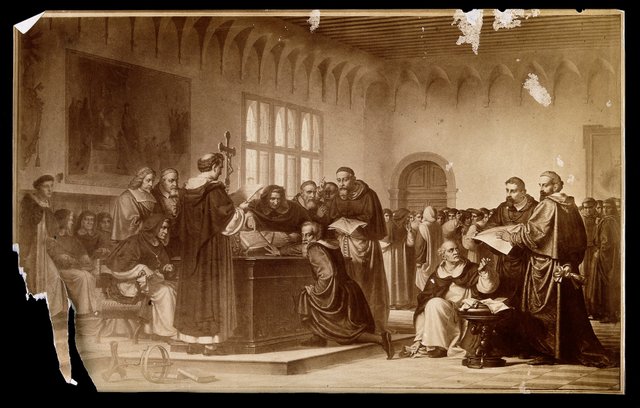The Truth About Galileo

When I was young, I (mostly) assumed that what I learned in school was true. Sadly, much was not. For example, I learned that Galileo was terribly mistreated by the rigid religious leaders of his day for simply speaking the truth about his observations through the telescope. The story was that poor Galileo, a scientist with no real interest in philosophy, was persecuted unjustly for disproving that the sun revolves around the earth - something the Bible does not even say, and that seems so peripheral to the faith. How narrow-minded the religious leaders were! Well, it seems this was a very distorted description of what happened, a view perpetuated by Voltaire for his own purposes.
Galileo said, "The Sun, with all the planets revolving around it, and depending on it, can still ripen a bunch of grapes as though it had nothing else in the Universe to do." That is a lovely thought. But Galileo did not say this out of reverence for the God of the Bible who created the sun. He wrote it in, "Dialogue on the two chief systems of the world" in which he goes on make this analogy: Just as it would be the height of arrogance for a grape to think that the entire purpose of the sun's existence is to ripen it, it is arrogant for humans to think that the entire purpose of God creating the universe was to support mankind.
You can agree or disagree with Galileo's conclusion, but one fact is inescapable: he was purposefully directly challenging the religious leaders of the day. He was in their faces, telling them they were wrong about God considering man special within his creation. Galileo did not believe that the Bible was true, and he was working hard to convince others of this as well. Contrary to what I was taught, Galileo was not an innocent misunderstood disinterested scientist unfairly receiving the unwanted attention of the religious leaders.
(photo from Wellcome Trust via WikiCommons)
If ever you're considering challenging the religious leaders of your day, ask yourself: what would Jesus do?
Do you mean to suggest only that he was not disinterested, or do you really mean to say that he was guilty and the religious leaders treated him appropriately?
I am suggesting that Galileo was far from disinterested - he was as much as philosopher as he was a scientist, and he was, with this book, very much picking a fight. He may have been justified in doing so, but what I was taught - that he was just a scientist reporting the facts as he saw them and the clergy disagreed with the facts so they persecuted him to suppress the facts - is completely false.
The book is a dialog between three characters. The character that represents the clergy's point of view is named "Simplicio" (Simpleton). Galileo was not acting the part of a disinterested scientist when he wrote that.
Jesus called the religious leaders of his day vipers and whitewashed tombs. He too was far from disinterested.
I am not weighing in on either side of the actual argument between Galileo and the clergy here.
I had never heard that particular quote but do agree with you in your conclusion on Galileo. I learned a lot of similar things growing up in school that was wrong as well. Even in church I was misinformed on some of the most well known 'bible stories'. The biggest one probably being that Jonah ran away from Nineveh because he was afraid when really it was because he hated them and didn't want God to save them from destruction.
Good point. It is important to read the original documents for ourselves, as adults. Even when we have to rely upon translations, we can often discern truth. Jonah is a good example. I also realized as an adult that every command in the Old Testament serves to make things better for humans - God is not a narcissist, and he is not capricious. Even when he told Abraham to sacrifice Isaac, that journey benefited Abraham and Isaac. Prior to it, Abraham likely was afraid that his love for Isaac was idolatrous, which would have made him hold back. After the journey, he had proven to himself that his priorities were appropriate, allowing him to love Isaac without restraint.